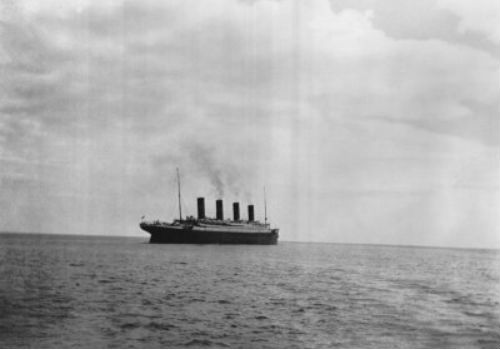There’s about 6,000 years of recorded history out there, so when you look at any week on the calendar it’s a pretty good bet that you’re going to find a number of things of historical significance. But I don’t believe that any other week quite compares to the third week in April when it comes to history.
(By the way don’t get any ideas, Kansas. 6,000 years of recorded history. People and planet Earth were around long before that. No matter what Carl Everett says.)
The third week in April seems to have more historical significance that most weeks on the calendar.
Yesterday the web was filled with stories marking the 45th anniversary of the Apollo 13 accident. You can actually watch news coverage of the entire event as it unfolded in real time through the magic of YouTube.
Abraham Lincoln was shot on April 14th, 1865 and lingered until early in the morning on the 15th. Coincidentally, that was Good Friday that year. Fitting when you think about it, since Lincoln helped lead the resurrection of the United States into a country that more closely resembled the spirit of its founding documents.
April 14th/15th also marks the anniversary of the sinking of the Titanic. Perhaps partly because of eye-rolling over the immense success of the movie Titanic, people have a tendency to under estimate the huge impact that the accident had on the history of the 20th century. At least two historians have said that it signified the end of the 19th century and the beginning of the 20th century.
The Titanic was a big deal before it ever met any icebergs. Bill Hammock, the “Engineer Guy” on YouTube has a great video on the construction of the Titanic. It’s a good example of the engineering significance of the ship even before it became historic for other reasons. The Titanic and Olympic were 100 feet longer than the ships they were designed to compete against, the Mauretania and Lusitania. This seems like it would be the equivalent of Boeing’s competitors responding to the 747 by building a three-deck airplane. Sure, most of the principles involved are the same, but it’s moving into completely new territory. Actually I don’t think the airplane example quite covers it. The Olympic class ships were so different from other ships of the day that it would be like SpaceX unveiling their Mars Colonial Transport, flying it to and from Mars and then coming up with a completely new version of it that was 10% bigger.
It was a big change.
That sort of giant leap forward in technology only comes when you have a tremendous amount of confidence in what you’re doing. There’s nothing wrong with having confidence, but this was confidence in something that was completely untested. That came from an age where everything, not just shipbuilding was making giant leaps forward. This was an age where technology was improving every area of life and everyone believed that there was no problem that could not be overcome. They believed that we were close to creating paradise through technology. We were going to bend the universe to our will.
The Titanic was a symbol of that attitude. White Star and Harland and Wolff didn’t decide to have lifeboats for only half the people on board because they didn’t care about the safety of their passengers. They honestly believed that they didn’t need them. They believed that ships were being built so strong that they would never need lifeboats for everyone. At most they might need them to rescue people from other ships that were in distress. Even if they did have an accident, the ship would surely stay afloat long enough for help to arrive. Technology had progressed to the point where nothing bad could happen. In 1907, Captain Smith himself, who would later go down with the Titanic said that he couldn’t imagine a situation where a ship would sink. “Modern shipbuilding has gone beyond that,” he said.
People actually believed that it was possible to “go beyond” having accidents. It wasn’t just ship building either. They honestly believed that the march of technology would eventually lead to a world of eternal bliss with every problem solved.
That’s a level of hubris that I don’t think most of us can wrap our heads around these days. I’d like to think we know that no matter how prepared you may think you are, things can always take you by surprise. That’s why they are called accidents. Charles Lightoller, the senior surviving officer (Who had one hell of a life story), said the Titanic was the last time we were sure about anything.
He was right. At least at this point in our history. The rest of the 20th century was a restless time. Within just a precious few months the world was on the road to becoming a very different place. The US decided to tax income of all things. Europe would be on the road that would lead to World War I, and World War II and the Cold War. Seemingly overnight we went from believing that technology would make everything better to using that same technology to find inventive new ways to kill each other. When technology is no longer a panacea for everything, you realize that things aren’t always getting better and can actually get a lot worse, that changes your outlook on life a lot.
The world changed overnight. Literally. Certainly the seeds for everything that happened afterward were sown long before April 15th, 1912, but I don’t think it’s an exaggeration to say that one event was a catalyst for changing our attitude about the future. We learned that when everything is possible, everything includes the bad stuff too.








The Most Historically Significant Week Of The Year http://t.co/HTZMrxtKag
The Most Historically Significant Week Of The Year http://t.co/2DsL5UH0nf
The Most Historically Significant Week Of The Year http://t.co/KRWYeBcQ0K